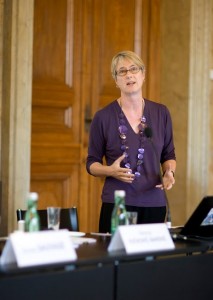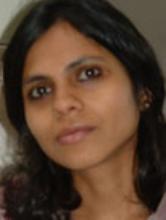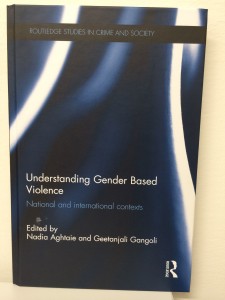Natasha Mulvihill, Andrea Matolcsi, and Catherine Briddick reflect on their experiences of academic conference presentations in the field of prostitution
The truth is that our finest moments are most likely to occur when we are feeling deeply uncomfortable […]. For it is only in such moments, propelled by our discomfort, that we are likely to step out of our ruts and start searching for different ways or truer answers. (M. Scott Peck)
The academic conference is an established forum for colleagues to present early findings and to road-test theories. Ranging from mutually affirming spaces, thronged with like-minded and well-acquainted delegates to more diverse, loosely-knit events where participants strike up haphazard groups, conferences offer different opportunities for communication and intellectual challenge. But how far should we actively seek out academic conferences that engender some discomfort to, in Peck’s terms, nudge us out of our particular research perspectives?
In April, we attended the first international conference organised by PROSPOL (Comparing European Prostitution Policies: Understanding Scales and Cultures of Governance), a funded strand of work under the European COST Action IS1209 initiative. Held in Vienna, delegates were asked to submit papers under the conference banner ‘Troubling prostitution: Exploring intersections of sex, intimacy and labour’. As researchers on prostitution policy for a number of years, we submitted and each had an individual paper accepted, as well as panel proposal, co-presented with a colleague at Oxford.
The delegate list boasted many of the contemporary researchers across the world writing on prostitution and prostitution policy: and was for this reason a landmark event. For those unfamiliar with this field of work, there is common demarcation made between researchers who understand selling sex as labour which deserves a statutory footing, with attendant rights and work to reduce harm, and researchers who understand prostitution as a reflection of patriarchy, characterised often by exploitation and abuse, and who lobby for measures to reduce demand for paid sex and support for women to exit. While this division glosses over the significant diversity of views within and across these positions, it is palpable in its effects. Researchers adopt terms consistent with the polar perspective (“sex work”, “prostitution”) and first encounters with other researchers can involve a few moments of careful neutrality, like poker players trying to read the other’s hand. Differences in standpoint have at times been personal and appear increasingly to be played out beyond the academic journals and in to social media. Institutions on name badges and delegate lists can suggest allegiances: ‘Centre for Gender and Violence Research at the University of Bristol’, for example, positions us as likely ‘prohibitionists’. Broadly, the PROSPOL conference was sympathetic to the sex work perspective.
We offer three observations. First, the discussion on prostitution and sex work can echo the story of the blind men and the elephant: researchers are often talking about different aspects of the sex industry and projecting their findings across the piece. For example, the experience of migrants working in parlours, female street workers, single mothers working independently from home, internet workers ‘on tour’, male escorts or female sex tourists are all characterised by different individual circumstances and different relations of power. So all researchers need to be careful about how they evidence their claims.
Second, as researchers writing from a feminist perspective, we are nevertheless interested in the interconnections between experiences of women and men across the sex industry and how these relate to gender-power relations. We are mindful that despite some diversity in those selling sex, and despite the intersectional relations of race, economic status, migration status (or lack thereof), sexuality or disability within the prostitution encounter, the purchase of sex remains an overwhelmingly masculine practice. This deserves further analysis.
Third, we note that prostitution as a practice rooted in patriarchy has been re-envisioned through the sex work movement and imbued with new meanings of freedom, choice, rights and transgression. Much of the current research is exploring the tensions between this understanding of prostitution and a less sympathetic legal and political context. However, rather than a brave new world, our concern would be that that this perspective reinforces prevailing power relations. For example, there was discussion within one panel that gender equality within sex work would mean more equal numbers of men and women paying for sex. Yet, this is surely the old gender politics where role equity for women has required women to move in to male constructed domains (politics, the workplace, front-line combat etc.) but rarely requires role change for men, or a significant challenge to the rationale, operation or normative status of those domains.
Despite our different viewpoints, we learnt a great deal from the breadth of research presented. We got to meet the people behind the printed word and exchanged stories of how we found ourselves researching this difficult area. We had common experiences on methods, on ethics, and on working with other organisations such as the police and health services and indeed with the women and men selling sex. There was universal agreement that these individuals should not be criminalised.
So while our experience at the conference was at times taxing, we came away from Vienna with new knowledge, new friendships and the recognition that a little discomfort can be a good thing.
Authors
Dr Natasha Mulvihill is a Research Associate and teacher at the University of Bristol’s Centre for Gender and Violence Research.
Andrea Matolcsi is a third-year PhD student at the University of Bristol’s Centre for Gender and Violence Research. Her participation in this conference was fully supported by the University of Bristol Alumni Foundation.
Catherine Briddick is studying for a DPhil in Law at the University of Oxford where she teaches international law and the protection of refugees, migrants and displaced persons.






